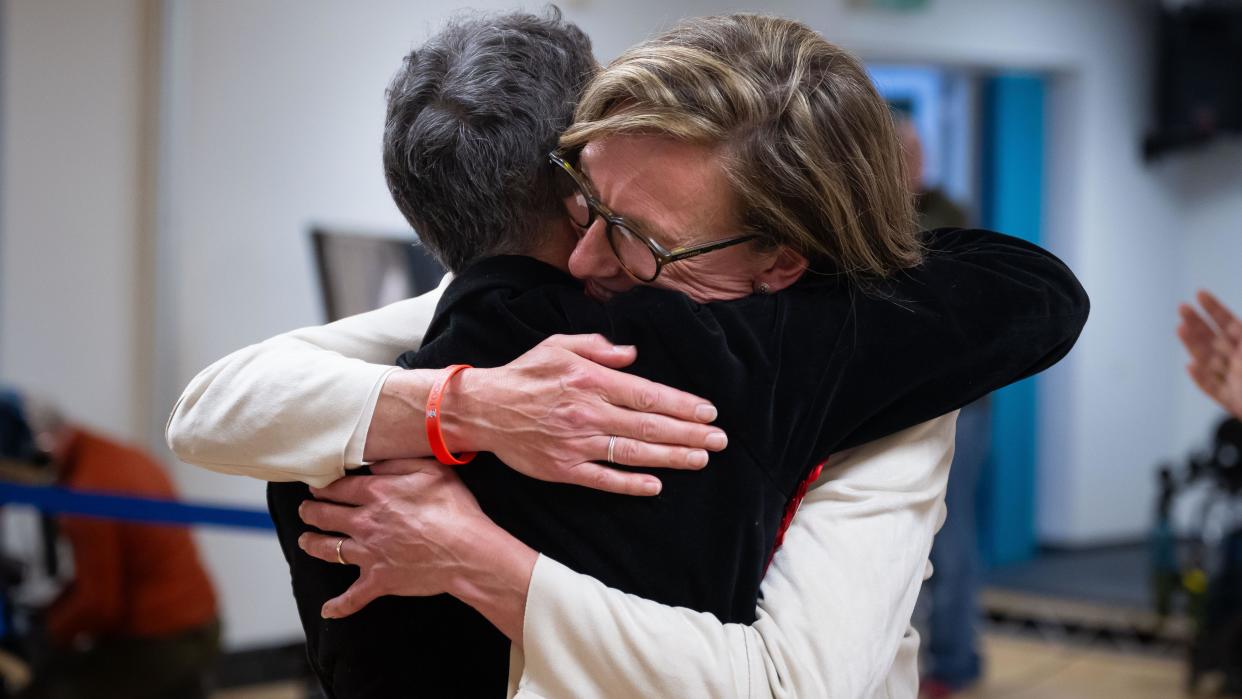The six biggest election moments in Wales

Labour is on course to win the UK general election by a landslide, with Sir Keir Starmer set to become the next prime minister.
In Wales, the Conservatives have faced a total wipeout while Labour has made significant gains but seen its vote share slip.
In a nutshell, here's everything you need to know.
1. Tory wipeout

It's been a disastrous night for the Conservatives in Wales who have lost every single one of their 14 seats.
It marks the first time since 2001 that the party is without a sitting MP in a Welsh constituency.
In a historic moment, David TC Davies became the first Welsh Secretary to lose his seat while in office.
So too did Craig Williams, the former MP for Montgomeryshire and Glyndŵr, who was suspended from the party during the campaign after becoming embroiled in the betting scandal.
Four other former Conservative Welsh secretaries also lost their seats - Stephen Crabb, Simon Hart, Alun Cairns and Robert Buckland.
2. Labour dominance but vote share slips
In a jubilant night for Labour, the party won back a string of Welsh seats from the Conservatives.
Boundary changes mean Wales' overall number of MPs has fallen from 40 to 32. Twenty-seven of those are now held by Labour - that's 84% of the overall total.
It's a notable increase from the 18 out of 40 - or 45% - of Welsh seats they secured during Boris Johnson's Conservative victory in 2019.
They re-took the blue ribbon along the north Wales coast, as well as Bridgend, the Vale of Glamorgan and Montgomeryshire.
There will, however, be disappointment that Caerfyrddin was a seat too far and that they came third on Ynys Mon. Both seats were instead won by Plaid Cymru.
And despite taking seats, the party's share of the vote in Wales dropped compared to 2019.
3. Wales' first ever ethnic minority MP

Labour's Kanishka Narayan became the first ever ethnic minority MP in Wales.
He took the Vale of Glamorgan from the Conservatives, ousting the former Welsh secretary Alun Cairns from the seat.
4. Plaid doubles its MPs
In what is being regarded as a very good night for Plaid Cymru, the party doubled its number of MPs from two to four.
It took the target seats of Ynys Môn and Caerfyrddin from the Conservatives, while holding on to Dwyfor Meirionydd and Ceredigion Preseli.
The party's leader Rhun ap Iorwerth said Plaid had made some "pretty important and dramatic gains" which gave him "confidence looking towards the Senedd elections in 2026".
5. Reform comes within a whisker
In England, Nigel Farage was elected as an MP for the first time, as his Reform UK party won four seats.
But despite the party securing 16.9% of the overall vote share in Wales, its candidates failed to win any Welsh seats.
They were, however, the second largest party in 13 out of the 32 counts.
They also came within a whisker in Llanelli, securing just 1,504 fewer votes than the victorious Labour party and a swing of more 13%.
Chris Bryant's majority in the Rhondda and Ogmore constituency - subject to boundary changes - was cut by nearly 10,000. Reform trailed by 7,790 votes.
6. Lib Dems are back
In what the Liberal Democrats have hailed a "seismic result", the party gained Brecon, Radnor and Cwm Tawe from the Conservatives.
It's the party's first seat in Wales since 2019.
David Chadwick, the new Liberal Democrat MP for the constituency, said it was a vote to "reject the sleaze and neglect of the previous party".
He said Wales would "once again have a Liberal voice fighting its corner".


